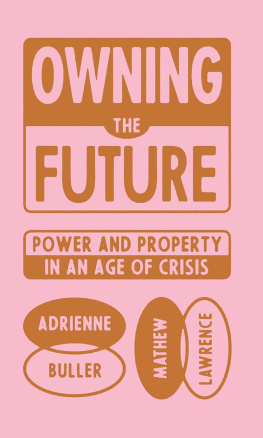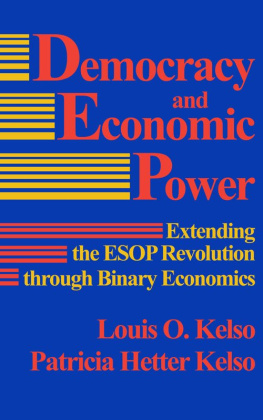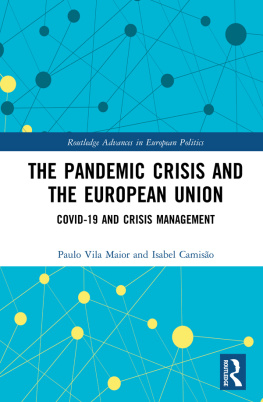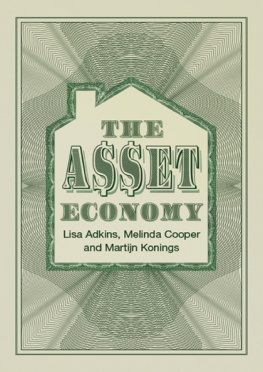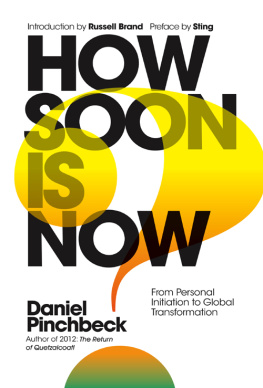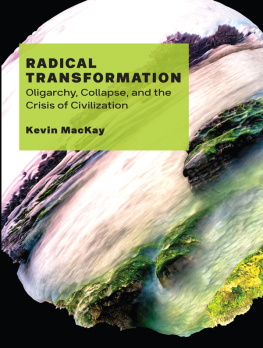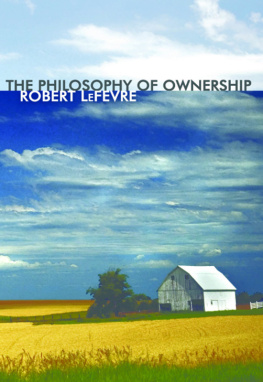Contents

OWNING THE FUTURE
OWNING THE FUTURE
Power and Property in an Age of Crisis
Adrienne Buller and Mathew Lawrence

First published by Verso 2022
Adrienne Buller and Mathew Lawrence 2022
All rights reserved
The moral rights of the authors have been asserted
1 3 5 7 9 10 8 6 4 2
Verso
UK: 6 Meard Street, London W1F 0EG
US: 388 Atlantic Avenue, Brooklyn, NY 11217
versobooks.com
Verso is the imprint of New Left Books
ISBN-13: 978-1-83976-580-3
ISBN-13: 978-1-83976-583-4 (US EBK)
ISBN-13: 978-1-83976-582-7 (UK EBK)
British Library Cataloguing in Publication Data
A catalogue record for this book is available from the British Library
Library of Congress Cataloging-in-Publication Data
A catalog record for this book is available from the Library of Congress
Typeset in Garamond by Biblichor Ltd, Edinburgh
Printed and bound by CPI Group (UK) Ltd, Croydon, CR0 4YY
Contents
The concept of progress must be grounded in the idea of catastrophe. That things are status quo is the catastrophe.
Walter Benjamin
In January 2021, the US secretary of the treasury Janet Yellen declared that the United States was facing four historic crises, of which Covid-19 was just one. In addition to the pandemic, the US is also facing a climate crisis, a crisis of systemic racism, and an economic crisis that has been building for fifty years. Yellen is far from a radical, but her diagnosis was correct. We live in an era of systemic and interconnected crises, which demands that our thinking be as radical as reality itself.
Throughout the pandemic, the news cycle has been gripped by a series of mounting disasters. Global vaccine apartheid, the result of the Global Norths refusal to allow non-proprietary sharing of vaccine technology, meant that by late 2021 80 percent of adults in the EU were fully vaccinated, but only 9.5 percent of people in low-income countries had received a single dose.As up to 500 million people were thrown into extreme poverty, with the incomes of 99 percent of the worlds population falling between March 2020 and October 2021, the wealth of the worlds 10 richest men doubled to $1.5 trillion, and a new billionaire was minted every 17 hours. Amid these plummeting incomes, the pandemic has super-charged the age of BlackRock: in late 2021 the worlds leading asset manager topped $10 trillion in assets under management, a jump of more than $1 trillion from the year prior. And throughout this period of acute crisis, the climate and ecological emergencies have continued to unfurl at astonishing pace: once-in-a-lifetime fires raged across Greece and the Pacific Northwest, while temperatures in Jacobabad, Pakistan surpassed the livable threshold for humans for the first time, a full decade ahead of scientific projections.
None of these are isolated. Rather, they are the fruits of a particular social and economic arrangement, one that has ripened over centuries. The crises we face today are both overlapping and unevenly felt, and running through each of them is an essential thread: the organising force of ownership. The pandemic set alight the mass of dry tinder piled up over decades in which the rights of property have been prioritised over collective well-being.
Power is intimately patterned by the distribution and nature of property rights. Thus, how our economy is owned, and in whose interest this power is exercised, decisively shapes our societies and our lives. This may seem like an obvious point; after all, property relations and the distribution of property have always been a vital determinant of how an economy is structured and whose interests it serves. We are hardly the first to suggest this, nor will we be the last. However, it is an insight that offers some hope. Ownership is not the sole determinant of social and economic outcomes, but it is a thread that connects the immense challenges we face, as well as the many ways in which we might strive to overcome them: by reimagining and transforming ownership.
Not-So-Unprecedented Times
The importance and organising power of ownership can be seen clearly in the pledges from the worlds high-income economies to pursue some form of green recovery from the pandemic, alongside cobbled-together plans to Build Back Better. While many hint towards a recognition of the structural weaknesses in our societies and economies, these plans, to date, offer no path to resolving the underlying structures that made them so vulnerable to the impacts of the crisis in the first place. They declare unprecedented times only to pursue the same path as before.
This durable commitment to status quo policy is not unrelated to the fact that, as we write this in the summer of 2021, the state of the global financial markets gives no indication of the turmoil of the past eighteen months. Buoyed by central bank and fiscal interventions, many stock market indexes closed 2020 at record highs, utterly divorced from the upheaval that most were experiencing. Then, as US president Joe Biden presented his infrastructure package and announced his intention for the US to become a world leader in electric vehicles, and Boris Johnson touted the prospect of battery gigafactories dotting the UK, the financial press began speculating that the world had entered a new commodity supercycle, which would see booming demand for years to come in everything from metals to forestry. Investors looked at the array of Build Back Betters pouring out of Europe, the UK, and the US, and saw dollar signs.
At the heart of these fiscal stimulus plans, however green, lurks a commitment to superficially greening our economies as they are, rather than reckoning with the governing logics, institutions, and profound inequalities in wealth and power that create the conditions for ecological devastation.
The threat of expropriation underlying plans for green recoveries, however, is just one avenue through which the contradictions of existing property relations have generated crisis and injustice, and will continue to do so as further crises unfold. Unequal access to vaccines underscores the tension between the needs of public health and the priorities of Big Pharma, which imposes false scarcity through the power of property. The inequalities of the housing market, and insecurity it generates, painfully highlight the unfairness of making access to a secure home increasingly conditional on owning housing wealth rather than guaranteed as a social right. The rise of behemoth asset management firms with universal and concentrated shareholding challenges fundamental assumptions about how the corporation, the engine of the global economy, is and should be governed. And arguably the most fundamental tension of all is the extreme concentration of wealth and control that enables a fraction of the population to consume and discard a majority of the worlds resources and enclose the atmospheric commons: its shared and finite ability to withstand the weight of rising carbon.
In many senses, the contemporary capitalist system is ruthlessly effective, doing precisely what it is designed to do: accumulate, enclose, concentrate and expand for the benefit of those who own. It has generated extraordinary wealth, but in doing so has made its hallmark poverty amid unprecedented plenty. Now, the same processes of concentration, enclosure, and extraction built into its design are beginning to exhaust the very sources of social and ecological wealth that capitalist economies rely upon to reproduce themselves. The tremendous explosion of wealth over the course of the twentieth century brought with it profoundly damaged ecosystems, from the Colorado Rivers near exhaustion to the death of the Catete River in Brazil under the weight of heavy metal runoff, while its production has continued to impoverish, oppress, and exploit communities from the Standing Rock Sioux to the garment workers of Leicester and Bangladesh. Environmental plunder, vaccine nationalism, enormously concentrated economic power these are best understood as products of the same foundation: the claims of exclusive and hierarchical ownership against the world. Ours is an economic model rooted in a particular ownership regime dominated by private control. By dispossessing individuals from access to the resources they need to live outside of the market, the worlds majority must sell their labour power for a wage to another, much smaller, class the owners of capital to survive. This arrangement inscribes class divisions and domination into social relations, between the owners of capital and their managerial allies and the comparatively propertyless majority, whether waged or unwaged. Its this constitutive role in shaping how an economy operates and in whose interest that has meant patterns of property and ownership have strongly shaped the unfolding of the pandemic, making this great equaliser so profoundly unequal.

